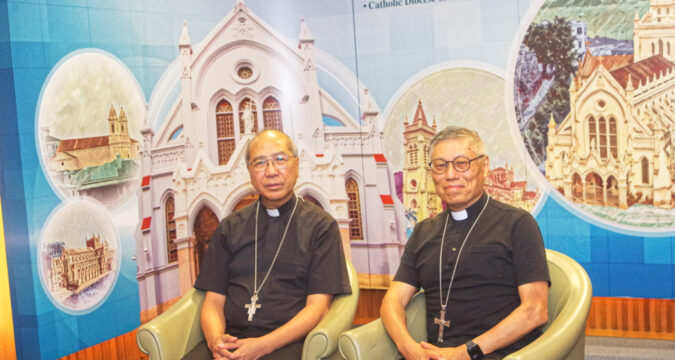
HONG KONG (SE): Following their participation at the Federation of Asian Bishops’ Conferences (FABC) Bishops’ Seminar on Synodality in Thailand from September 22 to 26, Cardinal Stephen Chow, S.J., and Auxiliary Bishop Joseph Ha Chi-shing of Hong Kong, sat down with the Sunday Examiner and Kung Kao Po on September 29 to share their experiences and insights.
The conversation touched on lessons from the Asian gathering, the vision for the Diocese of Hong Kong as it prepares for its 80th anniversary in 2026, and the possibility of a diocesan synod or assembly in the years ahead.
A meeting to build bridges
The Sampran seminar, held at the Baan Phu Waan Pastoral Training Centre, brought together bishops, clergy, and experts from across Asia under the theme of “conversion of relationships, processes, and bonds.”
For Bishop Ha, the experience was both enriching and sobering.
“It was inspiring to see how some Asian Churches have already convened synodal assemblies/synods,” he said. “These examples can serve as valuable references for us in Hong Kong. I was especially impressed by the progress made in transparency and accountability in some dioceses.”
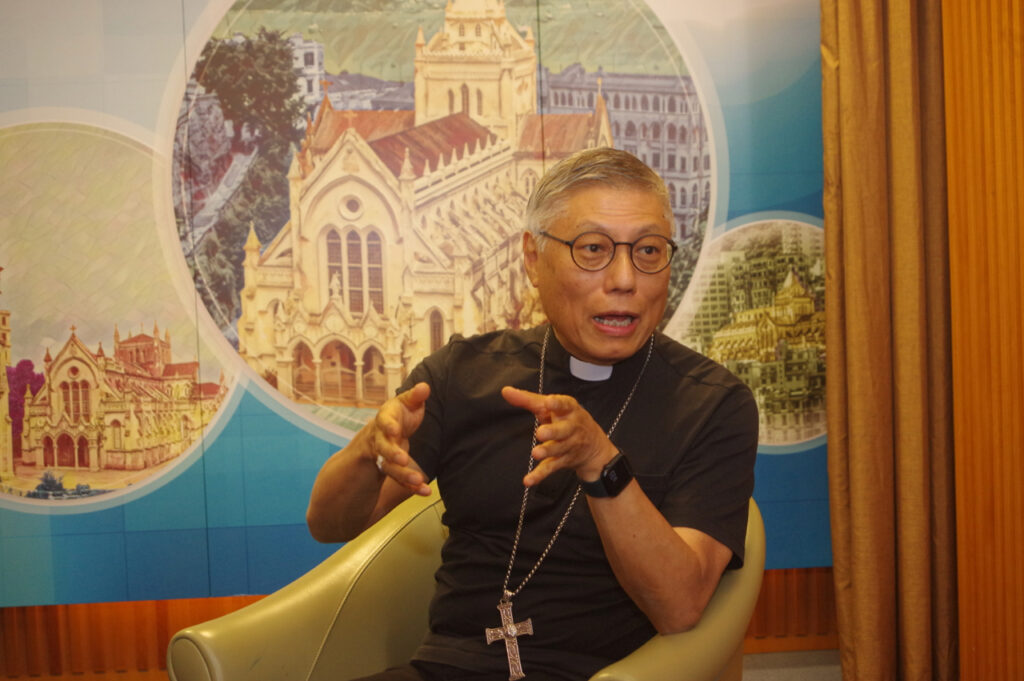
Cardinal Stephen echoed this appreciation, noting that the seminar offered a rare opportunity to listen to diverse voices across the continent. “It was not just about Church matters,” he explained. “The meeting allowed us to appreciate the importance to deepen relationships with other religious corporates and governments as well. This is very much in line with the Hong Kong Church’s role as a bridge-builder.”
The cardinal emphasised, however, that each diocese moves at its own pace. “The Synod’s Final Document is a guiding framework, not a rigid programme,” he said. “Synodality is not something achieved in one meeting. It is a change of culture, a spirituality. That takes time, patience, and perseverance.”
At its core, he added, synodality is about “learning to listen to each other, to care, and to seek unity while discerning for changes or not under the guidance of the Holy Spirit.”
Preparing for a local synod or assembly
Looking ahead, Cardinal Stephen revealed that Hong Kong is preparing to convene a diocesan synod or assembly, likely in 2027. While the format and specifics are still under discussion, he described the event as part of the diocese’s broader commitment to deepening the synodal path for the life of the Diocese.
These examples can serve as valuable references for us in Hong Kong. I was especially impressed by the progress made in transparency and accountability in some dioceses
Bishop Ha
“The ultimate goal,” he said, “is to form a mature laity, well prepared to participate actively in the Church’s life and mission.” The diocese has already taken steps to strengthen transparency and accountability in recent years. Among the developments are the establishment of a human resources department and the Diocesan Office for the Safeguarding of Minors and Vulnerable Adults, known as the Goretti Centre.
But the cardinal cautioned against moving too quickly towards structural reform. “We must first ensure that there is a good spiritual and cultural foundation. Otherwise, structural changes risk being superficial. Mentality and maturity must come first.”
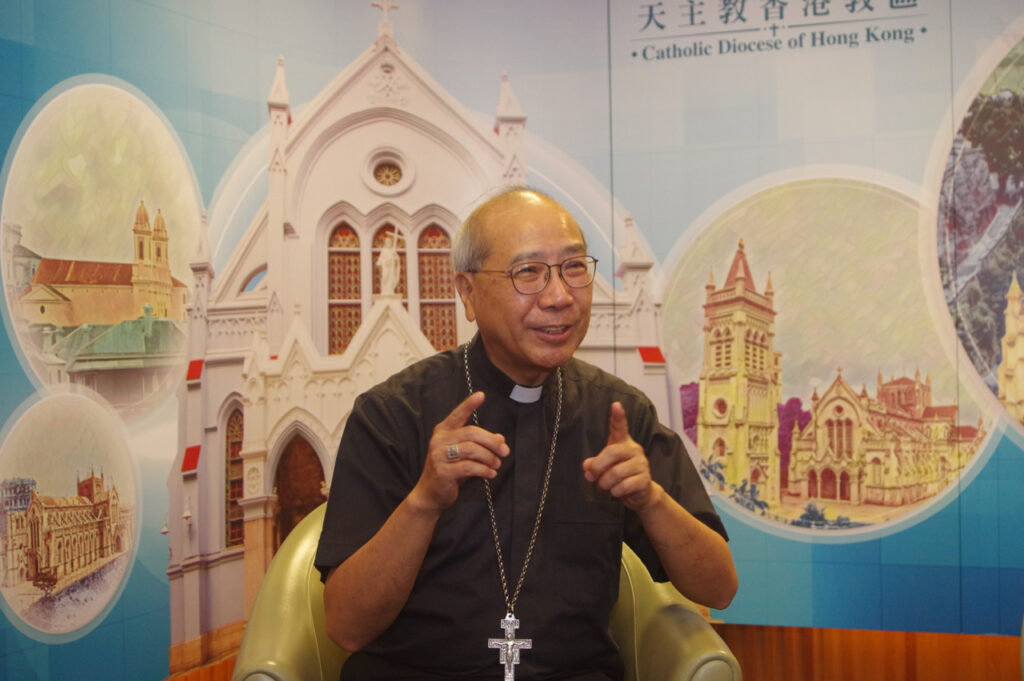
Discernment, not democracy
“Decision-making in the Church is through discernment, not simply consultation. It is not about majority votes or promoting personal agendas. Discernment is about seeking together the will of the Holy Spirit.” Cardinal Stephen underlined that synodality does not mean turning the Church into a democratic system.
He acknowledged that while the parish priest or bishop has the final say, they should honour the consensus reached through communal discernment, unless there are compelling reasons not to do so. “It is not democracy,” he stressed, “but it is also not top-down authoritarianism. It is communal, Spirit-led discernment.”
Bishop Ha added that formation is essential if clergy and laity alike are to grasp the true meaning of synodality. We need formation—both intellectual and experiential—to help people live this spirituality in daily life.
Decision-making in the Church is through discernment, not simply consultation. It is not about majority votes or promoting personal agendas. Discernment is about seeking together the will of the Holy Spirit
Cardinal Stephen
From concepts to practice
Both the cardinal and the bishop spoke about the practical applications of the Conversation in the Spirit, the prayerful methodology at the heart of synodality. Cardinal Stephen suggested it can also provide a fruitful approach when addressing controversial issues, provided that proper study, preparation and prayerful reflection are done in advance. Bishop Ha added that it can also guide important decisions, such as when a parish or school plans its annual programme.
The two bishops further highlighted the importance of retreats as a more effective spiritual tool than just lectures or workshops.
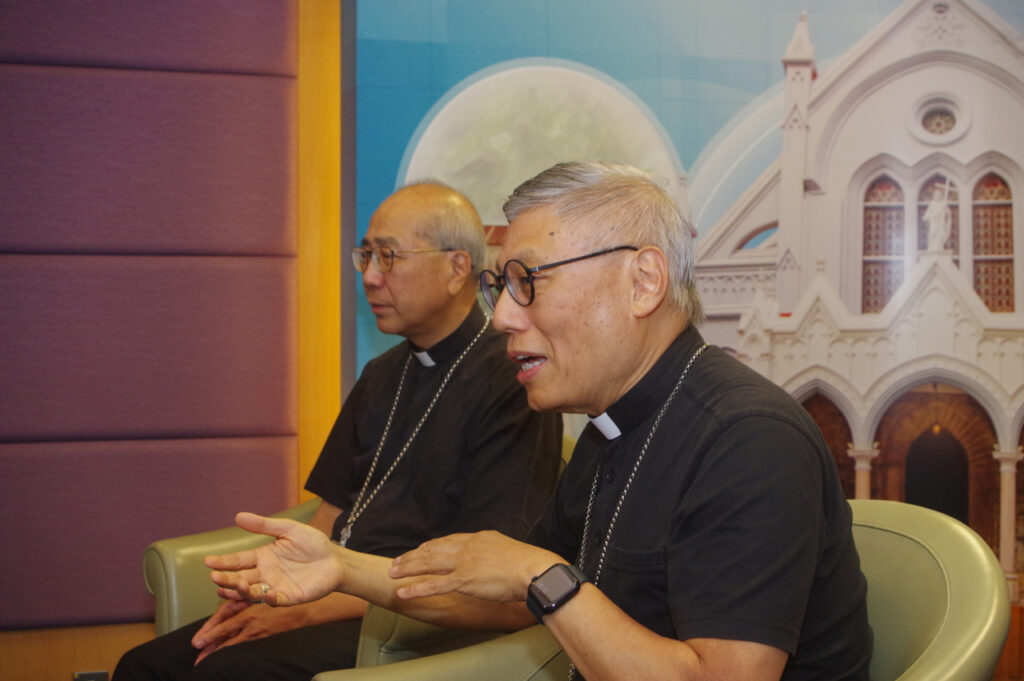
“Synodality is not only about ideas,” Bishop Ha said. “It is about an inner conversion, learning to listen with the heart. Retreats can help us grow in that spirituality.”
Cardinal Stephen also acknowledged the need to broaden participation in decision-making, especially for women. “Within the limits of canon law and diocesan possibilities, we must create more spaces for women’s leadership,” he said.
Another pastoral priority, he noted, is to extend greater sensitivity and inclusion to divorced and remarried Catholics and their children, as well as minority groups such as LGBTQ persons, refugees and displaced migrants. “The message of Pope Francis is clear,” he said. “All the baptised must be welcomed. A new way of being Church should touch the wounds of those who suffer.”
Cardinal Stephen also acknowledged the need to broaden participation in decision-making, especially for women
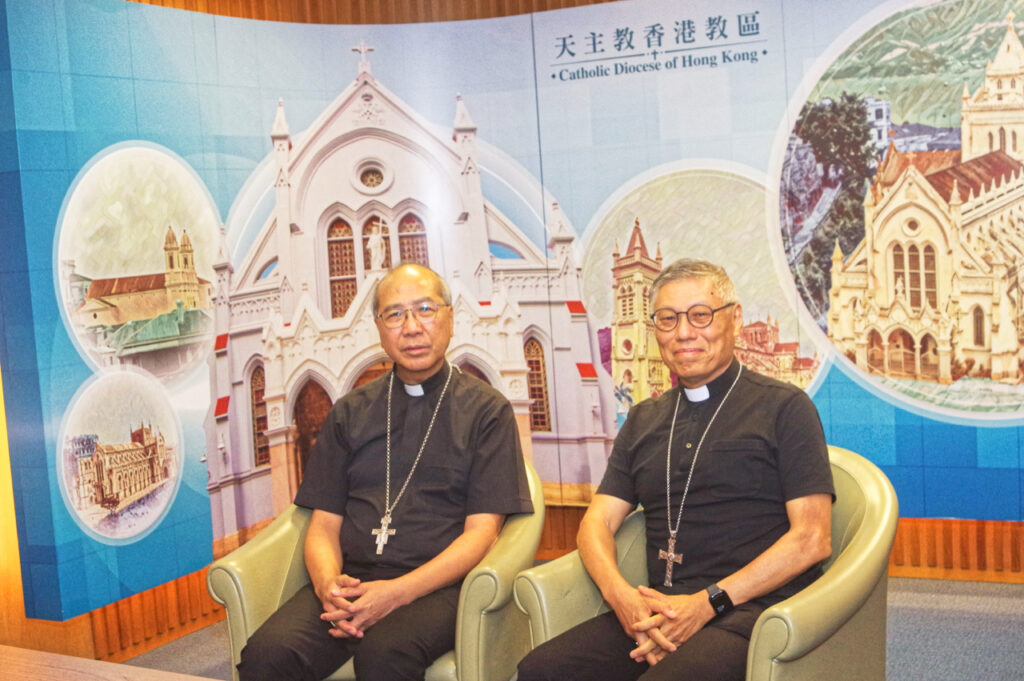
Synodality in Hong Kong: progress and challenges
Asked about Hong Kong’s own progress in synodality, both bishops recognised a mixture of strengths and areas needing development.
Some argue that lay participation in councils and committees already shows synodality at work. Others insist that because ultimate decisions still rest with clergy, there is more to be done.
Bishop Ha described the situation as “dynamic, not static.” He added, “We have made progress compared with some regions, but there is room to grow,” citing the absence of a unified youth council as an example.
Cardinal Stephen underlined again that synodality is not about abolishing hierarchy. “It is a deepening of the vision of Vatican II, which describes the Church as the People of God. Decision-making is not democratic, but neither is it arbitrary. It is a communal process of discerning God’s will.”
He distinguished between “decision-making” and “decision-taking.” The former involves communal discernment, while the latter is the responsibility of the ordained in ‘ecclesial discernments.’
“The clergy must honour the fruits of discernment,” he explained, “but they are also called to safeguard unity and fidelity to Church teaching should the discernments run against the teaching.”
We have made progress compared with some regions, but there is room to grow
Bishop ha
Building communion in a diverse city
The bishops also reflected on Hong Kong’s unique interreligious and ecumenical context. Six major religions coexist peacefully in the city, but Cardinal Stephen acknowledged that cooperation can be further enhanced. Bishop Ha pointed to parish-level initiatives with Anglican communities, including shared meals and upcoming ecumenical retreats, as signs of hope.
He suggested further initiatives such as pulpit exchanges and parish visits to build stronger ties across religious traditions. “It is about creating encounters that lead to mutual respect and collaboration,” he said.
A journey, not a project
As the conversation drew to a close, both bishops emphasised that synodality is best understood not as a programme but as a journey. Bishop Ha added: “We cannot expect instant results. But we can nurture the seeds of dialogue, listening, and discernment. The 80th anniversary of our diocese is a timely moment to reflect on our past and prepare for the future with renewed faith.”
Cardinal Stephen concluded, “It is a spirituality, a way of life. It calls for patience, openness, and trust in God’s timing. If we walk this path together—with humility, with respect, with the Holy Spirit as our guide—then our Church in Hong Kong can grow ever more into the People of God we are called to be.”








